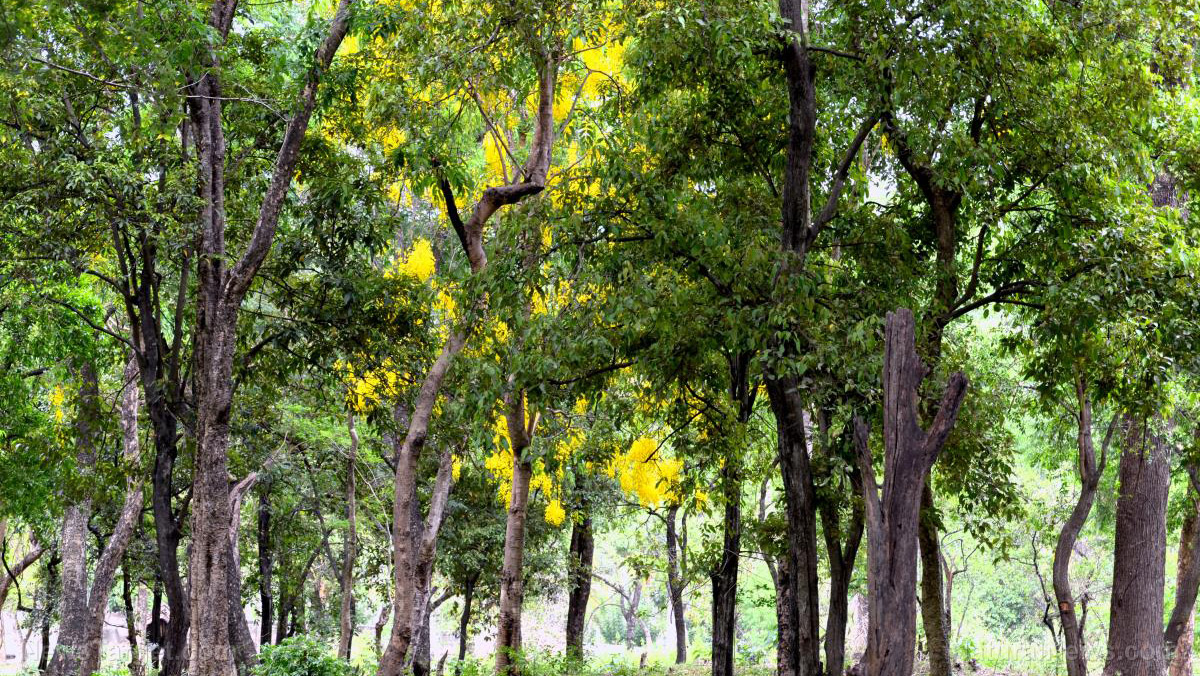
The sandalwood population is vulnerable due to over-harvesting, according to journalist Alexandra Engler. But given conservation efforts and current ethical harvesting techniques, there may be hope yet for the sandalwood.
The high demand for sandalwood
Sandalwood, also known as India's royal tree, is a class of aromatic woods native to India. It is one of the most valuable trees in the world, and various species of this wood are prized for their fragrant resin. However, sandalwood resin lies deep within the trunk. This is why harvesting sandalwood resin often requires cutting down the entire tree.
Historically, sandalwood is one of the most sacred and powerful ingredients in Ayurvedic medicine – a 5,000-year-old practice that began in India. In Ayurveda, sandalwood oil is used to promote heart health, reduce inflammation, improve sleep quality and aid weight loss. Additionally, sandalwood oil is used in Chinese and Tibetan medicine to treat illnesses like colds, bronchitis, dysentery and liver complications. Meanwhile, the ancient Egyptians used sandalwood oil for embalming the dead. Like the Hindus, they also used the oil in rituals for worship. Sandalwood oil was also used in aromatherapy to induce relaxation, relieve stress, promote skin repair and protect individuals from infection. Today, cosmetics companies manufacture facial oils from sandalwood resin to treat skin diseases like psoriasis and eczema. (Related: Try sandalwood oil for dry skin and hair.)
In the 1950s, India would experience a boom in its sandalwood trade thanks to the aromatherapy and cosmetics industries. Because of the high demand for sandalwood, more than 480,000 trees were harvested annually in southern India within the next two decades. Due to this unprecedented rate of harvesting, only about 350,000 trees were left in the wild by the mid-1970s.
The last trees standing
This drastic figure caused the Indian government to immediately ban the harvesting of sandalwood. Unfortunately, the near extinction of the Indian sandalwood has done little to deter smugglers from logging within sandalwood reserves. Indeed, banning the harvesting of sandalwood might have only helped increase the tree's value. In a story published by the Los Angeles Times, foreign correspondent Shashank Bengali wrote how a decorative folding screen made from red sandalwood was once sold at an auction in China for $23 million. Today, fragrances, oils and skincare products containing all-natural sandalwood are also difficult and expensive to come by. Due to the high selling value of sandalwood, locals continue to risk life and limb inside protected reserves despite concentrated efforts by the government to curb smuggling.
But there may still be hope for India's royal tree. Matthew Mileo, the founder of an all-natural face oil line that uses Indian sandalwood, shared in an interview that the distilleries he works with harvests the resin from the tree's roots instead of the trunk. They also only harvest from tree stumps that have already been cut down long ago so that there is no need to cut down the trees. Distillers also replace each stump with thirty saplings that are tagged and protected.
Different species of sandalwood are cultivated in plantations to curb the threat of extinction. Currently, multiple varieties of sandalwood can be found in Australia, Indonesia, China and Hawaii.
EssentialOils.news has more stories on the health benefits of sandalwood oil and its alternatives.
Sources include:
Please contact us for more information.























